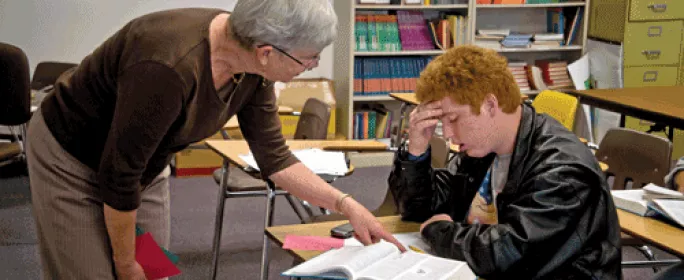A “world-leading” research centre will be set up in England to improve adult literacy and numeracy, the government announced today.
The new Behavioural Insights Research Centre for Maths and English will be launched with a £2.9 million three-year start-up grant from the Department for Business, Innovation and Skills (BIS).
Run in partnership with the Behavioural Insights Team, often called the Nudge Unit, a former government institution, the new centre will conduct comprehensive research, trials and analysis into adult literacy and numeracy.
It will look at the best ways to motivate people to improve their English and maths and how to develop flexible ways of learning that fit in with people’s lives and meet the needs of employers.
It is part of the government’s efforts to tackle the growing number of young adults who lack level 2 English and maths qualifications - equivalent GCSE grades A*-C.
Skills minister Matthew Hancock said: “This new centre will team world-leading academic researchers with our best and brightest policy makers to give scientific insights into how adults best gain skills in English and maths and the ways in which government can apply these methods to benefit the highest possible number of people.”
David Halpern, chief executive of the Behavioural Insights Team, said: “We will be working together [with BIS] over the coming months to mobilise the centre and look forward to delivering results over the next few years that make a real difference to the lives of people across the UK.”
The news was welcomed by adult education body Niace, which said that it was looking forward to working with the new centre. Its chief executive, David Hughes, said it showed the government was serious about supporting more adults to improve their skills.
“A deeper understanding of the different and new approaches which are needed to be able to persuade and motivate people to face the challenge of learning new skills will be invaluable,” he said.
“We know people with maths and English difficulties have differing needs, and therefore need different starting points, different engagement strategies and differing progression routes. Setting up this research centre will help us to design learning and education to match those differing needs.”




